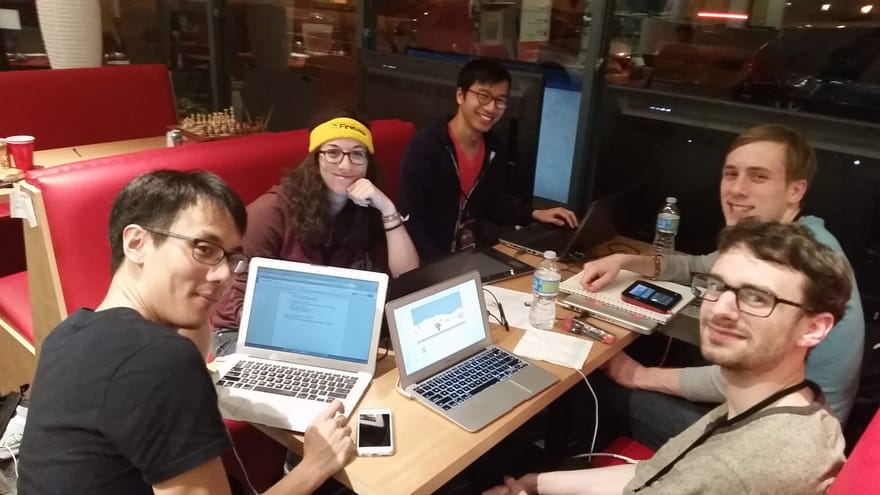A video game convention for the LGBT community widens its scope

This article is part of a collaboration with iQ by Intel.
It’s not groundbreaking news to learn video games have an inclusivity problem. From recent public bullying and online name-calling, to outright prejudice against women at gaming events, the gaming industry is undergoing much-needed scrutiny.
According to Matt Conn, one of the founders of GaymerX, a gaming convention targeting the LGBT community, the exclusivity in the gaming community has been around for as long as he’s been playing games. But GaymerX might change that. Now entering its third year, the conference’s scope has expanded to include all people who play video games, instead of limiting its marketing to just LGBT “gaymers.” The topic and the discussion surrounding diversity and the idea of safe spaces forms part of the core of Conn’s motivations, but the larger message has shifted. It’s now about how “everyone games.”

GaymerX is a case in point of how to change a culture of exclusivity through inclusion. But change like that doesn’t come easily; the conference has long drawn the ire of people who think that a gaming conference targeting the queer community is useless. This is the same line of reasoning that leads people to believe that if there are gay pride events, there should also be straight pride events, that it should go both ways despite disparities in the power structure between the heterosexual community and the LGBT community. The Westboro Baptist Church protested the events as well, with other dissenters saying that it was counterproductive to gaming.
“People thought it was a bad idea because it’s not productive to the community to schism it off,” Conn said. “I felt it was my duty to help explain why I didn’t feel that as the case,” which he’s been trying to do through GaymerX.
“If you’re not a straight white dude, it’s very easy to be dismissed”
Conn has been dealing with schisms his entire life, feeling like he didn’t fit into either the gaming or gay communities. He grew up in rural Vermont, dedicating his free time to video games but never fully feeling like the games he was playing were made for him. He felt similarly when he checked out gay social scenes, where certain “cliques,” as he said, were formed to inadvertently exclude gay geeks. While falling onto two different sides of a spectrum that seemed to never cross, the communities were eerily similar.
“[Gay folks have] created these very specific sets that people had to fall into and if you didn’t fall into, out of safety, they kind of reject you,” Conn said. “The same way in the gaming world. If you’re not a straight white dude, it’s very easy to be dismissed.”

Part of the reasoning behind the very first GaymerX was so that people like Conn could feel welcome and comfortable. But after a couple of years, the founders realized that there was a larger picture, people falling into other categories (or not falling into categories at all) that attended despite the focus on LGBT gamers. Employees noticed that around 20 to 30 percent of attendees weren’t male during the first convention. By the second year, the number had grown to at least 50 percent. Panels ranged from discussions about the gay community to ruminations on women and minority rights when it came to gaming. The idea of creating a safe space had grown beyond what Conn and the others had anticipated.
“The more the events grew, the more people said how much they meant to them,” he said. “It didn’t make sense to me because it was a lot of people who wanted to talk about, ‘How do we deal with these issues in games?’”
at the forefront of creating safe spaces for geeks that fall outside the typical straight, white, male demographic
That’s why the tagline for GX3 is “Everyone Games.” GaymerX hopes to be at the forefront of creating safe spaces for geeks that fall outside the typical straight, white, male demographic, putting thought into what exactly goes into creating that kind of environment. Conn said that the staff puts volunteers through extensive training, teaching them how to deal with certain situations and how to be sensitive to gender and sexuality issues. They implement gender neutral bathrooms, have options to put pronouns on badges, and have a number of panels that seek to portray diverse perspectives, with discussions on everything from how to create a podcast to why a character named Iron Bull in the popular role-playing game Dragon Age is sexy (as Conn put it).
As for the future of GaymerX, it’s all a matter of how long people will need it.
“Fifty years from now there will still be people who are homophobic and transphobic and think that those things are sins and should not be recognized or appreciated,” Conn said. “There’ll always be places where people don’t feel super comfortable.” Thanks to movements like GaymerX, there will also be places where people are comfortable, too.
///
Header image via Adam Wiggins.




Comments ()